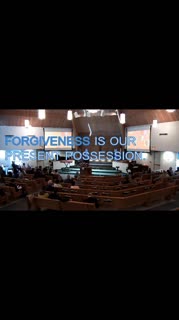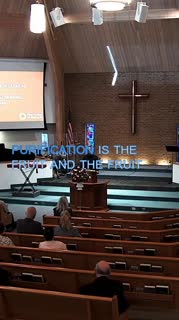Preaching the Gospel to Ourselves: Remembering God's Goodness
Devotional
Sermon Summary
Bible Study Guide
Sermon Clips
"As a father shows compassion to his children, so the Lord shows compassion to those who fear him. For he knows our frame. He remembers that we are dust. As for man, his days are like grass. He flourishes like a flower of the field." [00:50:32] (16 seconds)
"And in this particular psalm, we don't know his circumstance or what he was actually doing that may be the background of it. But what we can discern is that he's preaching the gospel to himself." [00:52:47] (13 seconds)
"David is doing exactly the thing that all of us should do when the life is happening all around you. It's pressing you in on all sides. You're trying to figure out how to make your faith work in the midst of the life that you're living." [00:55:24] (15 seconds)
"Without the forgiveness of sin, it's impossible to enjoy all the other blessings that God gives us in their fullness. And so this is important. We don't earn forgiveness by making ourselves fit for heaven." [00:59:40] (16 seconds)
"God forgives all your iniquities. Present tense connotes continuous action. It's happening right now, and it's going to continue to happen. Why do we need that? I don't know about you, but because we continue to sin." [01:00:43] (14 seconds)
"Forgiveness is our present possession. I want you to notice, not just the rest of the Bible, I want you to notice how many verses in this psalm speak of forgiveness." [01:02:49] (10 seconds)
"God has removed your sin, people, as far as the east is from the west. He has an infinite amount of forgiveness and love for you, despite what you do think or act, you know, in all those ways." [01:05:33] (19 seconds)
"Purification is the fruit and the fruit of Christ's atoning work for us. Here's the last thing I want you to see in this text. It's the third redemptive benefit that David highlights here, and it's pity." [01:13:42] (15 seconds)








